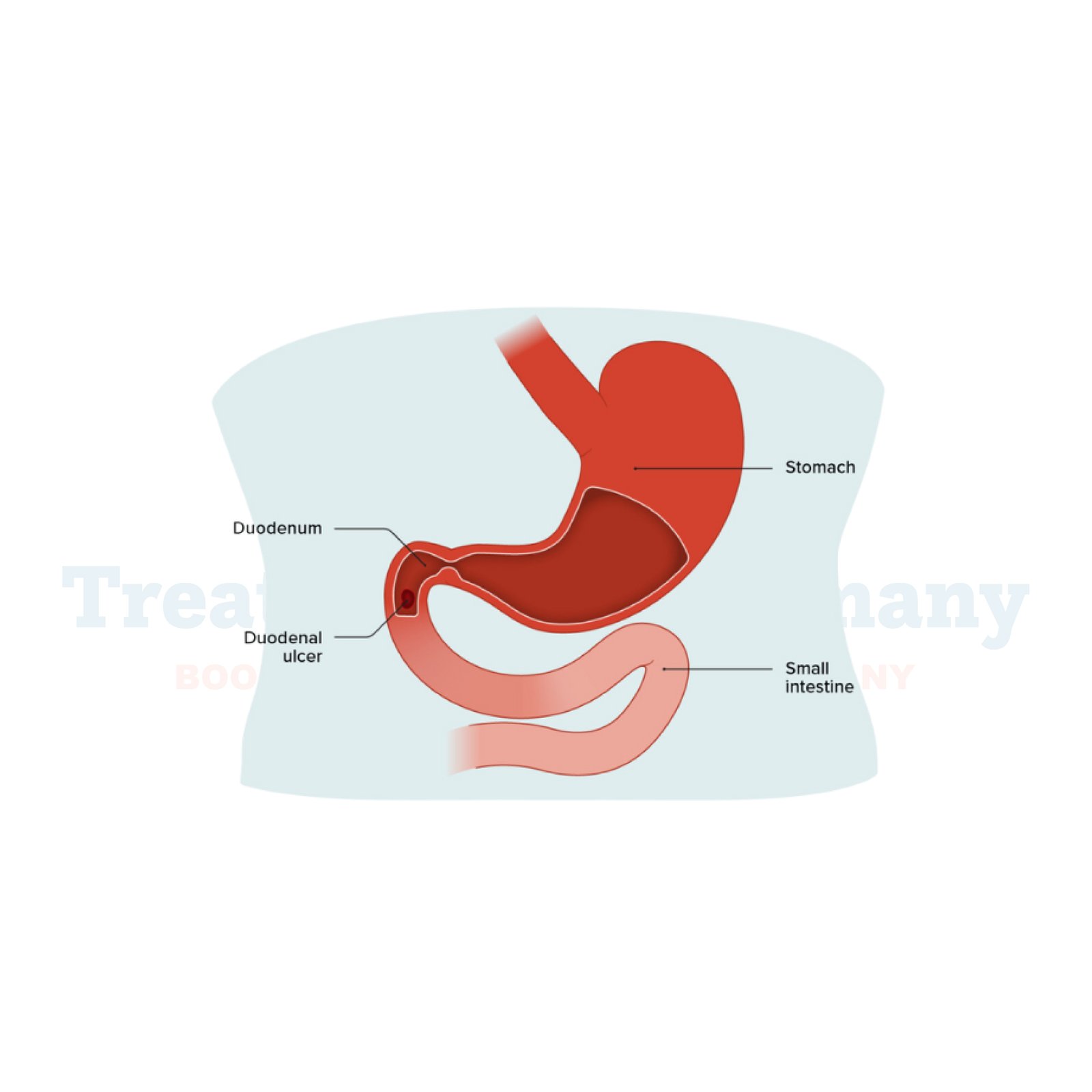What is a Duodenal Ulcer?
A duodenal ulcer is a type of peptic ulcer that occurs in the duodenum, which is the first part of the small intestine, located just beyond the stomach.
This ulcer forms when the protective lining of the duodenum is eroded by stomach acid, leading to a painful sore.
Common causes include infection with Helicobacter pylori (H. pylori) bacteria, excessive use of nonsteroidal anti-inflammatory drugs (NSAIDs), and an imbalance in digestive acids and protective factors in the gastrointestinal tract.
Side Effects of Duodenal Ulcer
Duodenal ulcers can cause a variety of symptoms and side effects, including:
- Abdominal Pain: Often described as a burning or gnawing sensation, especially when the stomach is empty.
- Nausea and Vomiting: Some patients may experience nausea, and in severe cases, vomiting.
- Indigestion: Frequent bloating, belching, or a feeling of fullness.
- Loss of Appetite: Resulting in weight loss and malnutrition.
- Changes in Stool: Dark, tarry stools can indicate bleeding in the ulcer.
- Complications: In severe cases, ulcers can lead to bleeding, perforation (a hole in the duodenum), or obstruction in the digestive tract.
How is a Duodenal Ulcer Diagnosed?
Diagnosis of a duodenal ulcer typically involves several steps:
- Medical History and Physical Examination: A healthcare provider will review your symptoms and medical history and conduct a physical examination.
- Endoscopy: An upper gastrointestinal (GI) endoscopy allows doctors to view the lining of the duodenum directly and take biopsies if necessary. This is the most definitive test for diagnosing duodenal ulcers.
- Imaging Studies: Sometimes, imaging tests like an abdominal X-ray or a barium swallow test may be used to assess the ulcer and its effects.
- Helicobacter pylori Testing: Tests such as breath, stool, or blood tests can identify an H. pylori infection, which is a common cause of duodenal ulcers.
Potential Treatment of Duodenal Ulcer
Treatment for duodenal ulcers aims to relieve symptoms, promote healing, and prevent complications. Options include:
Medications:
- Proton Pump Inhibitors (PPIs): These drugs reduce stomach acid production, allowing the ulcer to heal.
- H2-Receptor Antagonists: These also reduce acid production but are typically used for less severe cases.
- Antibiotics: If H. pylori infection is present, a combination of antibiotics will be prescribed to eradicate the bacteria.
- Antacids and Acid Reducers: These help neutralize stomach acid and provide symptomatic relief.
Lifestyle and Dietary Changes:
- Avoiding Irritants: Reducing the intake of NSAIDs, alcohol, and smoking can help manage symptoms and promote healing.
- Dietary Adjustments: Eating smaller, more frequent meals and avoiding spicy or acidic foods can alleviate discomfort.
- Surgery: In rare cases where ulcers do not respond to medication or cause severe complications, surgical intervention may be necessary.
👉 Contact us for further information and receive a complimentary consultation.


.webp)
 (1).webp)

.webp)
 (1).webp)


.webp)
 (1).webp)

.webp)
 (1).webp)
